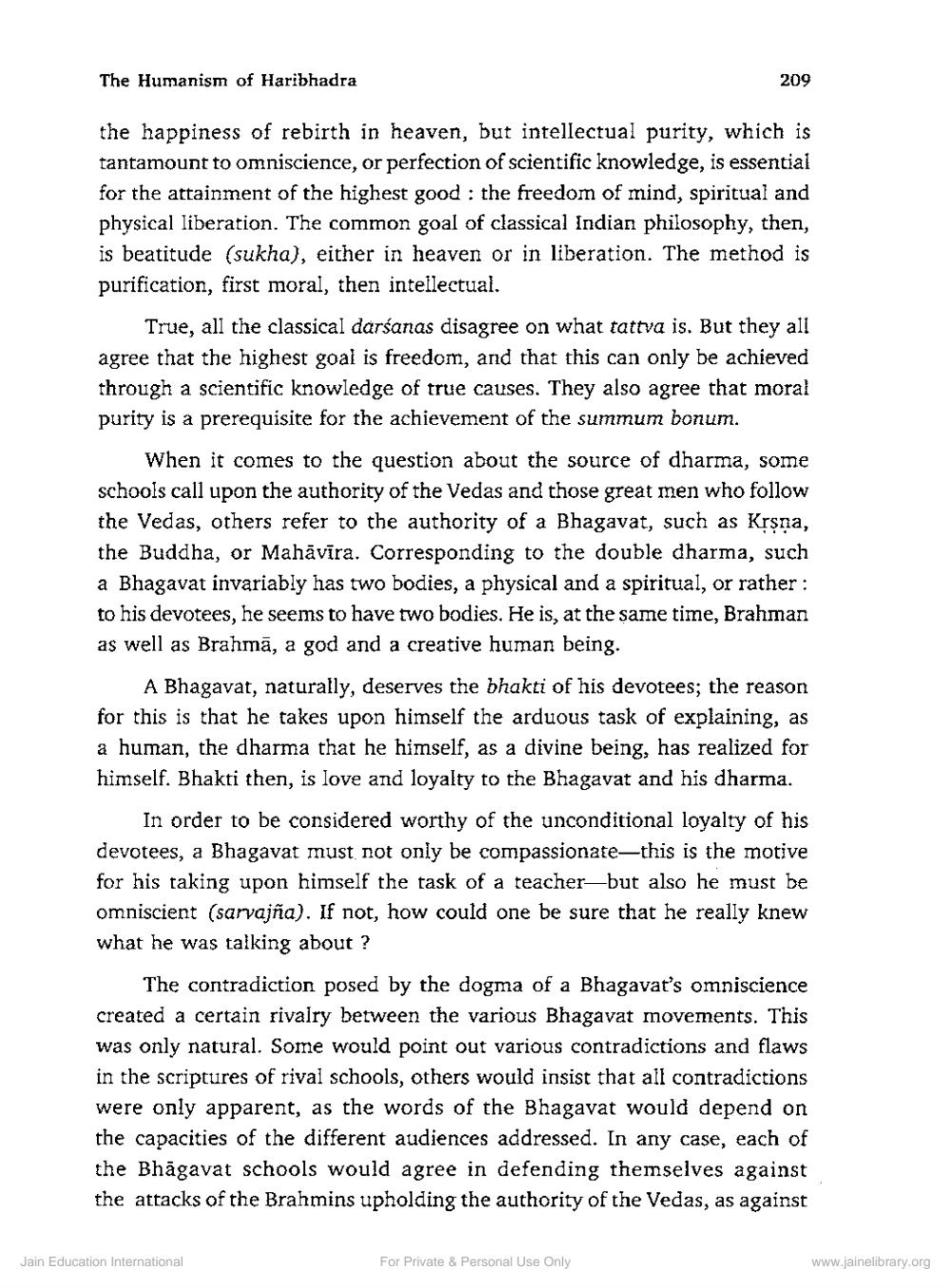Book Title: Humanism of Haribhadra Author(s): Christian Lindtner Publisher: Z_Nirgranth_Aetihasik_Lekh_Samucchay_Part_1_002105.pdf and Nirgranth_Aetihasik_Lekh_Samucchay_Part_2 View full book textPage 7
________________ The Humanism of Haribhadra 209 the happiness of rebirth in heaven, but intellectual purity, which is tantamount to omniscience, or perfection of scientific knowledge, is essential for the attainment of the highest good : the freedom of mind, spiritual and physical liberation. The common goal of classical Indian philosophy, then, is beatitude (sukha), either in heaven or in liberation. The method is purification, first moral, then intellectual. True, all the classical darśanas disagree on what tattva is. But they all agree that the highest goal is freedom, and that this can only be achieved through a scientific knowledge of true causes. They also agree that moral purity is a prerequisite for the achievement of the summum bonum. When it comes to the question about the source of dharma, some schools call upon the authority of the Vedas and those great men who follow the Vedas, others refer to the authority of a Bhagavat, such as Krşna, the Buddha, or Mahāvīra. Corresponding to the double dharma, such a Bhagavat invariably has two bodies, a physical and a spiritual, or rather : to his devotees, he seems to have two bodies. He is, at the same time, Brahman as well as Brahmā, a god and a creative human being. A Bhagavat, naturally, deserves the bhakti of his devotees; the reason for this is that he takes upon himself the arduous task of explaining, as a human, the dharma that he himself, as a divine being, has realized for himself. Bhakti then, is love and loyalty to the Bhagavat and his dharma. In order to be considered worthy of the unconditional loyalty of his devotees, a Bhagavat must not only be compassionate—this is the motive for his taking upon himself the task of a teacher—but also he must be omniscient (sarvajña). If not, how could one be sure that he really knew what he was talking about ? The contradiction posed by the dogma of a Bhagavat's omniscience created a certain rivalry between the various Bhagavat movements. This was only natural. Some would point out various contradictions and flaws in the scriptures of rival schools, others would insist that all contradictions were only apparent, as the words of the Bhagavat would depend on the capacities of the different audiences addressed. In any case, each of the Bhāgavat schools would agree in defending themselves against the attacks of the Brahmins upholding the authority of the Vedas, as against Jain Education International For Private & Personal Use Only www.jainelibrary.orgPage Navigation
1 ... 5 6 7 8 9 10 11 12 13 14 15 16 17 18 19 20 21 22 23 24 25 26 27 28 29 30 31 32 33 34 35 36 37 38 39 40 41 42 43 44 45 46 47 48 49 50 51 52 53 54 55 56 57 58 59 60 61 62 63 64 65 66
